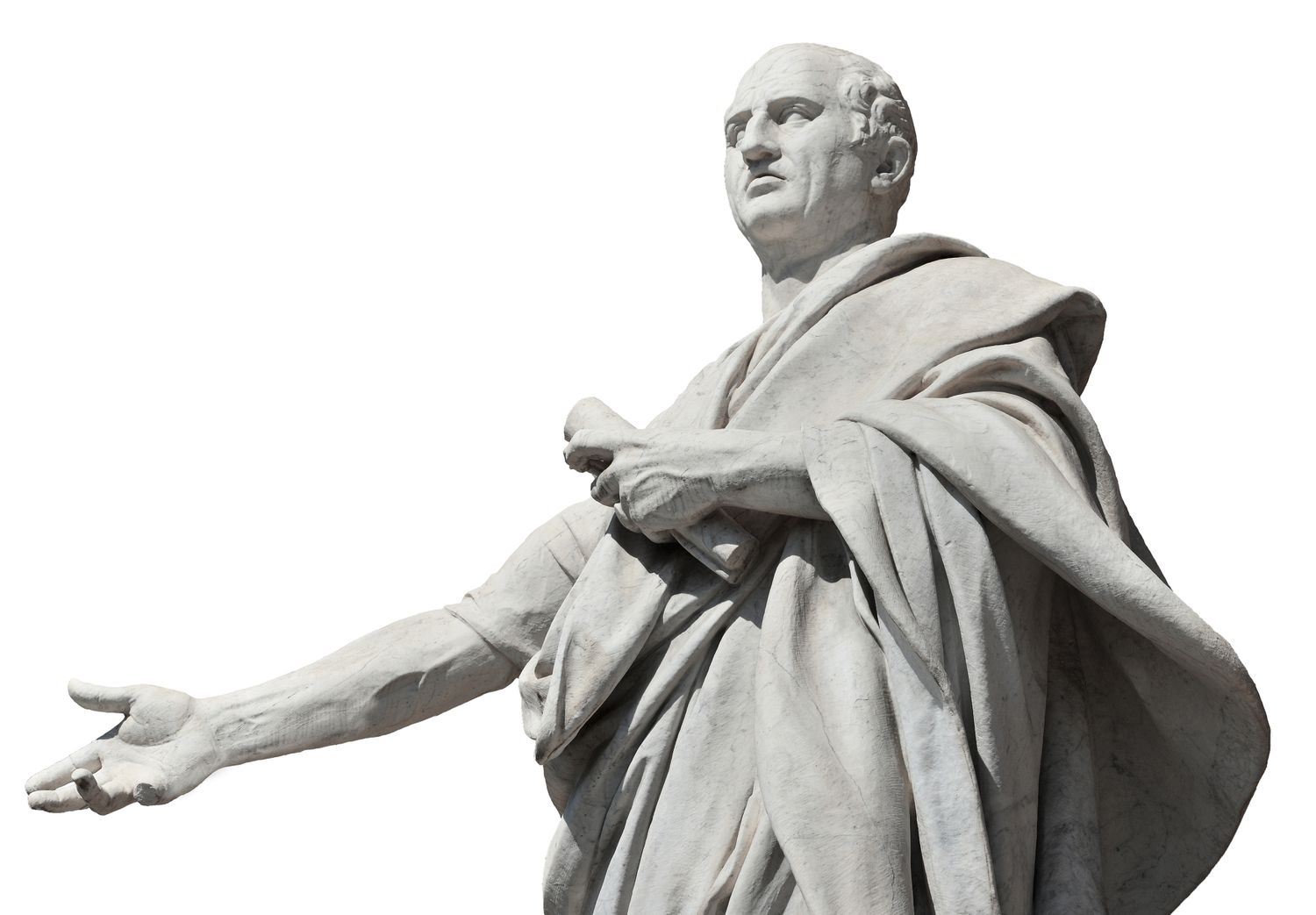
Cicero, the renowned Roman philosopher, lawyer, and politician, has left an indelible mark on history. His eloquent speeches, profound writings, and wise counsel continue to intrigue and inspire people to this day. As one of the most influential figures in ancient Rome, Cicero played a significant role in shaping the political, social, and intellectual landscape of his time.
In this article, we will delve into the fascinating world of Cicero and explore eight intriguing facts about his life, career, and contributions. From his remarkable oratory skills to his complex relationship with power and his unwavering commitment to justice, we will uncover aspects of Cicero’s life that shed light on the complexities of human nature and the challenges faced by those who dare to defend truth and virtue.
Key Takeaways:
- Cicero, the influential Roman figure, was a master of persuasive language and a staunch defender of democracy, leaving a lasting impact on ancient history and philosophy.
- His legacy lives on through his profound insights into politics, ethics, and human nature, inspiring generations and shaping the intellectual landscape of the Renaissance.
Cicero was born in 106 BC in Arpinum, Italy.
Cicero, originally known as Marcus Tullius Cicero, hailed from a small town in Italy. His humble beginnings did not hinder his rise to prominence, as he went on to become one of the most respected figures in the Roman Republic.
He was a master of rhetoric.
Perhaps the most defining characteristic of Cicero was his mastery of rhetoric. He believed that persuasive language had the power to shape opinions and influence political decisions. Cicero’s artful use of words and ability to captivate audiences set him apart as an exceptional orator.
Cicero was a staunch defender of the Roman Republic.
Throughout his career, Cicero vehemently advocated for the preservation of the Roman Republic. He believed in the importance of checks and balances and opposed any attempt to concentrate power in the hands of a single individual. Cicero’s steadfast commitment to the Roman Republic made him a champion of democracy.
He coined the concept of natural law.
Cicero’s philosophical contributions were significant. He formulated the concept of natural law, which states that certain ethical principles are inherent in nature and can be discovered through reason. Cicero’s ideas on natural law laid the foundation for modern legal and moral philosophy.
Cicero’s speeches and writings have had a lasting impact.
Cicero’s works, including his speeches and philosophical treatises, continue to be studied and celebrated to this day. His profound insights into politics, ethics, and human nature resonate across centuries, offering timeless wisdom and inspiration.
He was involved in a political power struggle with Mark Antony.
In the aftermath of Julius Caesar’s assassination, a power struggle ensued between Mark Antony and the Senate. Cicero found himself caught in the middle of this conflict and became a prominent critic of Mark Antony’s autocratic ambitions. His scathing speeches against Antony ultimately led to his downfall.
Cicero’s execution in 43 BC marked the end of an era.
As the political landscape shifted in Ancient Rome, Cicero’s unwavering defense of the Republic became a liability. In 43 BC, he was declared an enemy of the state and executed. His death marked the end of an era and symbolized the waning influence of republican ideals.
Cicero’s writings were rediscovered during the Renaissance.
Centuries after his death, Cicero’s works experienced a resurgence in popularity during the Renaissance. Scholars and thinkers were captivated by his eloquent prose and profound ideas. His writings played a significant role in shaping the intellectual landscape of the time.
In conclusion, these 8 intriguing facts about Cicero highlight the remarkable life and contributions of this influential Roman figure. From his exceptional oratory skills to his staunch defense of the Republic, Cicero’s legacy continues to captivate and inspire generations.
Conclusion
In conclusion, Cicero was an incredibly influential figure in ancient Rome. His oratory skills, philosophies, and political career left a lasting impact on the Roman Republic and set a standard for public speaking and rhetoric that is still revered today. Cicero’s role in defending the principles of the Republic, his commitment to justice, and his contributions to political and philosophical thought make him a fascinating historical figure. Exploring his life and legacy reveals not only intriguing facts about his personal life and achievements, but also provides insights into the evolution of Roman society and the power of persuasive communication.
FAQs
Q: When was Cicero born?
A: Cicero was born on January 3, 106 BCE.
Q: What were Cicero’s major accomplishments?
A: Cicero was known for his exceptional skills as an orator, his influential speeches and writings, his role in defending the principles of the Roman Republic, and his contributions to philosophy and political theory.
Q: What is Cicero famous for?
A: Cicero is famous for his eloquent speeches, his role in exposing Catiline’s conspiracy, his literary works such as “De Oratore” and “De Officiis,” and his pivotal role in the transition from the Roman Republic to the Roman Empire.
Q: Did Cicero have any political affiliations?
A: Cicero was a member of the Optimates, a conservative political faction in Rome. However, he maintained his independence and was not strictly aligned with any particular political group.
Q: How did Cicero die?
A: Cicero was executed on December 7, 43 BCE, as part of the proscriptions following the formation of the Second Triumvirate.
Q: What impact did Cicero have on society?
A: Cicero’s impact on society was significant. His eloquence and rhetorical skills set a standard for public speaking and influenced the development of Western philosophy and political thought. He played a crucial role in promoting the values of justice, liberty, and the rule of law.
Q: Are Cicero’s works still studied today?
A: Yes, many of Cicero’s works, such as “De Oratore” and “De Officiis,” are still studied today for their insights into rhetoric, ethics, and political philosophy.
Q: Was Cicero considered a controversial figure?
A: Yes, Cicero was a controversial figure during his time. He faced criticism for his political stances and was even forced into exile for a brief period. However, his writings and speeches continue to be admired for their intellectual depth and timeless wisdom.
Cicero's life and legacy continue to captivate historians, philosophers, and enthusiasts of the Roman Republic. Uncover more intriguing facts about other influential figures, such as Gaius Marius, whose military reforms and political ambitions shaped Roman history. Delve into the wisdom of Epictetus' philosophy, which emphasizes personal ethics and resilience in the face of adversity. Explore the controversial career of Sulla, a key player in the Roman Republic's turbulent final years, whose actions had far-reaching consequences for Rome's political landscape.
Was this page helpful?
Our commitment to delivering trustworthy and engaging content is at the heart of what we do. Each fact on our site is contributed by real users like you, bringing a wealth of diverse insights and information. To ensure the highest standards of accuracy and reliability, our dedicated editors meticulously review each submission. This process guarantees that the facts we share are not only fascinating but also credible. Trust in our commitment to quality and authenticity as you explore and learn with us.


